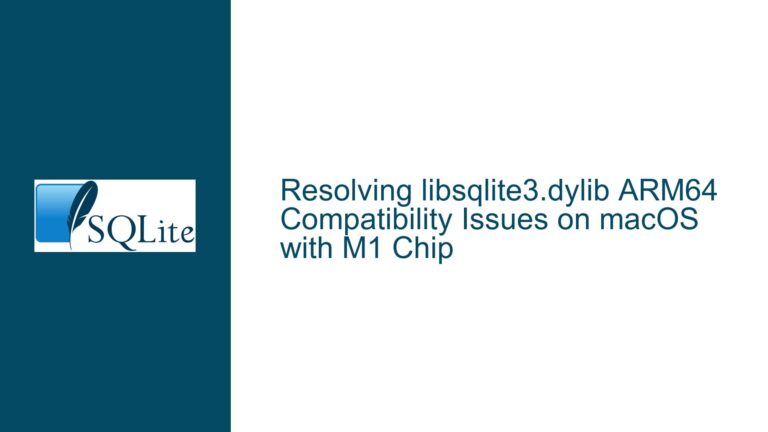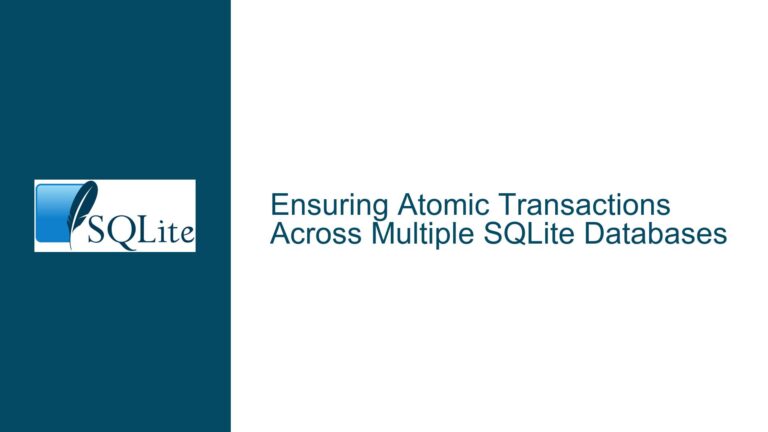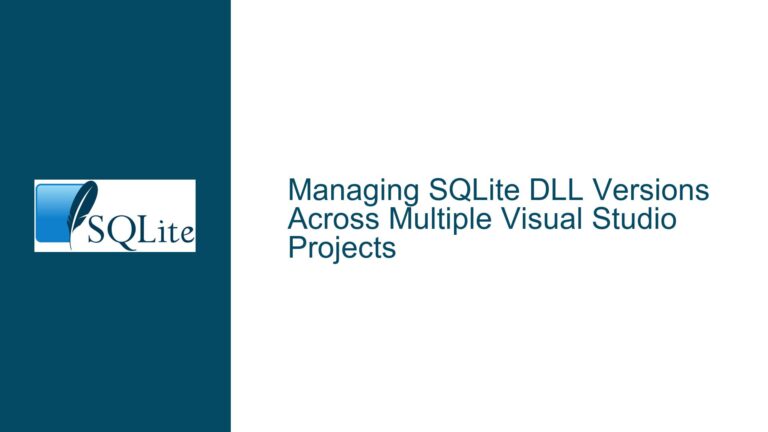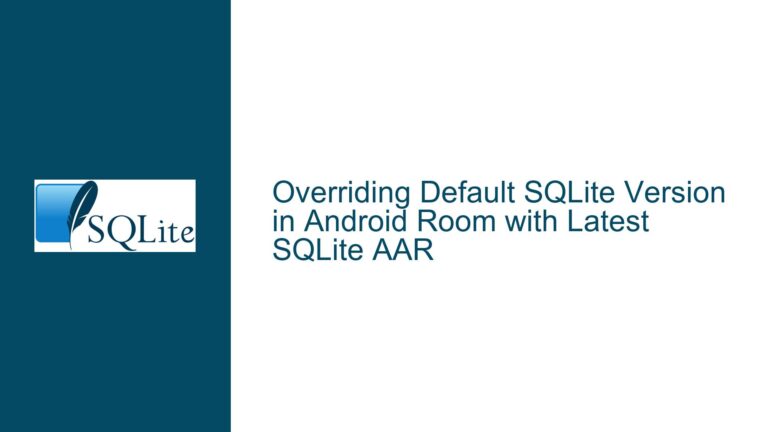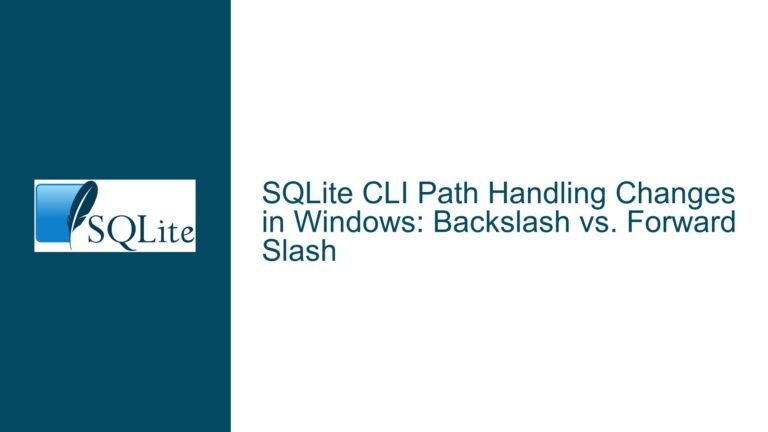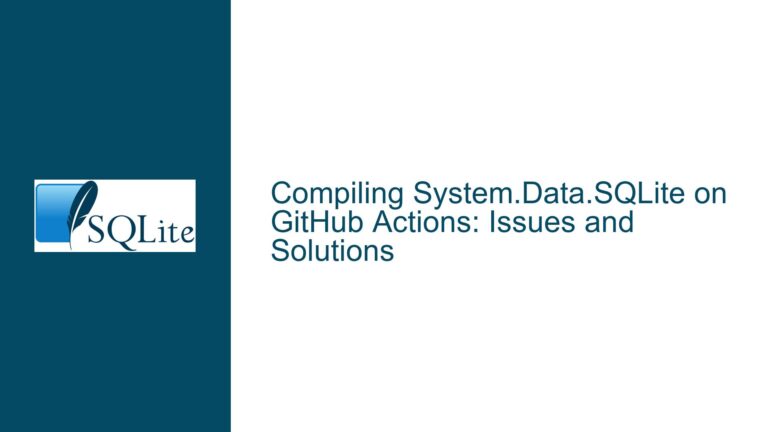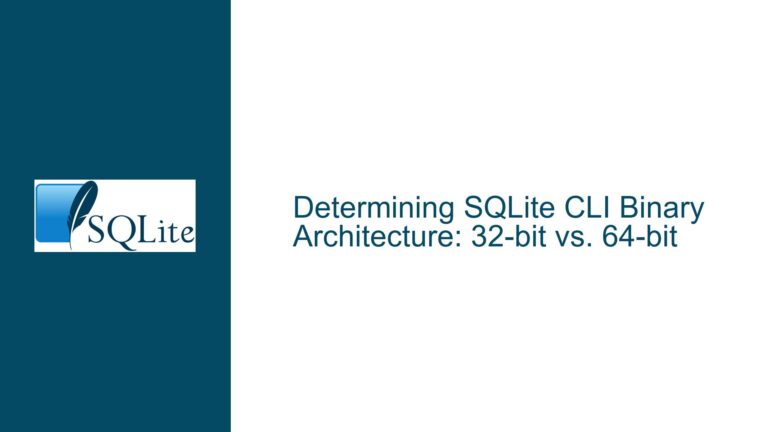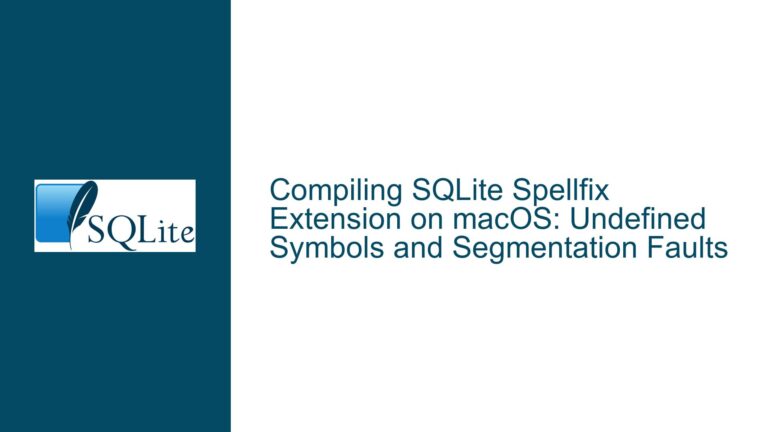Resolving libsqlite3.dylib ARM64 Compatibility Issues on macOS with M1 Chip
Missing ARM64 Architecture in libsqlite3.dylib on macOS M1 The transition to Apple’s M1 chip, based on the ARM64 architecture, has introduced significant changes in how software is compiled and executed on macOS. One of the challenges developers face is ensuring that their applications, including dependencies like SQLite, are compatible with both Intel (x86_64) and ARM64…
